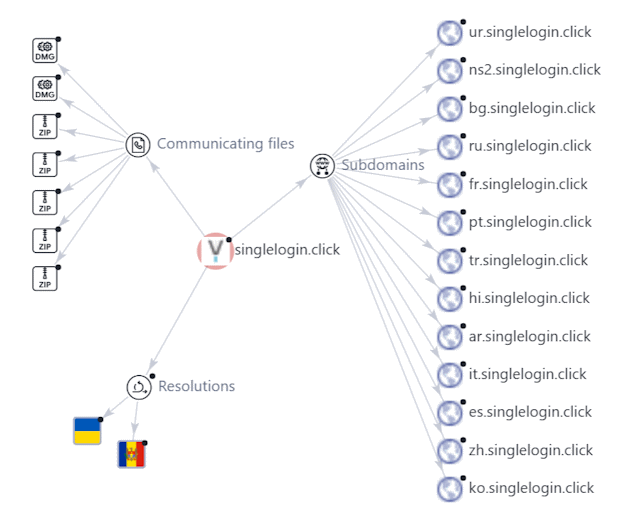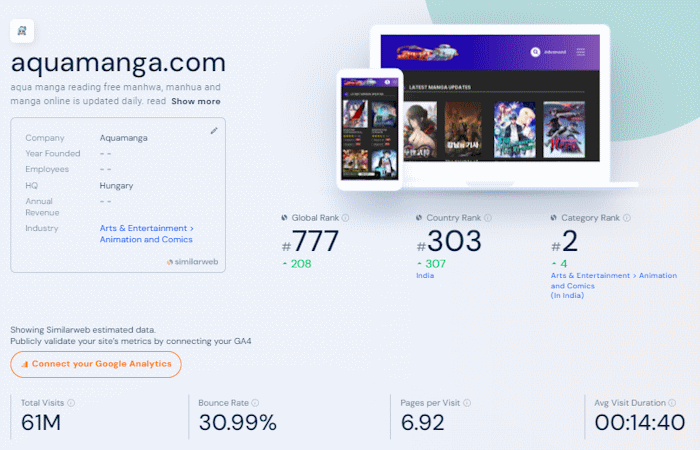-
chevron_right
Copyright & Piracy News Brief #1 | Extra News, Views & Updates From TF
news.movim.eu / TorrentFreak · Wednesday, 15 November, 2023 - 00:29 · 2 minutes
![]() ⦿
Guy Owes $117m After pornEZ Suddenly Got Hard
⦿
“No Fees Ever” Tanggula TV Trafficking Targeted
⦿
Z-Library’s Domains Just Keep on Disappearing…
⦿
Anna’s Archive’s Sudden X / Twitter Vanishing Act
⦿
Sci-Hub Meets 24/7/365 UK Block Party
⦿
Guy Owes $117m After pornEZ Suddenly Got Hard
⦿
“No Fees Ever” Tanggula TV Trafficking Targeted
⦿
Z-Library’s Domains Just Keep on Disappearing…
⦿
Anna’s Archive’s Sudden X / Twitter Vanishing Act
⦿
Sci-Hub Meets 24/7/365 UK Block Party
Mid-January 2023, MindGeek subsidiary MG Premium sued Nguyen Hoi , the alleged operator of unlicensed adult streaming site, Pornez.net. (2:23-cv-00349-CBM-PVC – MG Premium Ltd v. Nguyen Hoi)
Data from Google’s Transparency portal reveals that MG filed over 5.6 million DMCA takedown notices hoping to make the site less visible. On November 6, 2023, a California district court handed down a permanent injunction and ordered the defendant to pay MG Premium a cool $117,270,000 in statutory copyright damages.
Pornez.net is no longer online but sites with similar domains and extensions appear keen to emulate their namesake, not including the damages award, obviously.
Extracting massive damages awards from pirates is something DISH Network also enjoys. A DISH/Sling lawsuit filed last month in a Carolina district court targets Sentry Inc. and alleged owner, Michael Graziano. The complaint claims that the defendants “provide and profit from the sale of an illicit streaming service known as Tanggula” through which it’s possible to watch DISH/Sling programming without authorization.
 Tanggula set-top boxes are advertised on social media platforms, sold via various affiliate and reseller schemes, and
‘reviewed’ regularly on YouTube
.
Tanggula set-top boxes are advertised on social media platforms, sold via various affiliate and reseller schemes, and
‘reviewed’ regularly on YouTube
.
According to the Black Friday offers currently being advertised on Twitter , $299 is the ‘bargain’ rate for a black and red Android-based device. However, DISH doesn’t appear too concerned about Tanggula boxes per ser , its focus is the software that runs on these devices and the thousands of live TV channels on offer. Indeed, after shelling out the initial sum, Tanggula says buyers can look forward to paying “no fees ever”.
DISH claims that the defendants sell access to packages via the websites www.alltvboxes.com and www.elitetv2023.com. Both websites were operational when the lawsuit was filed but are now offline. DISH investigators made undercover purchases according to the complaint (9:23-cv-05074 DISH Network LLC et al v. Sentry, Inc. et al, pdf ) , which seeks damages for alleged violations of the DMCA’s anti-trafficking provisions ( 17 U.S.C. S 1201 ).
Z-Library had dozens of domains seized last week , presumably some type of gift to celebrate the one-year anniversary of the initial law enforcement crackdown. During this wave the United States teamed up with Austrian law enforcement agencies ( more detail in our Nov 8 report ).
Z-Library confirmed the seizures late last week, noting that the domains were connected to Z-Library sub-projects. Since our initial report, an additional main/backup domain has also been seized.
Z-Library is still in control of its main domain (singlelogin.re) but lost singlelogin.asia in the recent round of seizures. It joins singlelogin.app, singlelogin.site, singlelogin.click, and a couple of hundred additional domains now under the control of U.S. authorities.
On a related note, Anna’s Archive appears to be still going strong but as a reader pointed out to us on Monday, the @AnnaArchivist account on X/Twitter was wiped out last week and no longer exists .
Finally, Sci-Hub and its mirrors/proxies will soon become less accessible for customers of the UK’s largest ISPs. As part of a High Court-sanctioned blocking campaign, Elsevier & Springer Nature recently added around a dozen new entries to the blocklist.
Sci-hub.pk and various subdomains of scihubtw.tw, sci-hub.se, sci-hub.st and unblockit.zip, join hundreds of previous blocklist entries targeting Sci-Hub and Libgen.
From: TF , for the latest news on copyright battles, piracy and more.




 On November 12, 2005, I started a ‘blog’ to share news snippets and information about emerging file-sharing technology. At the time it would’ve been unthinkable that it would still draw visitors in 2023. But here we are.
On November 12, 2005, I started a ‘blog’ to share news snippets and information about emerging file-sharing technology. At the time it would’ve been unthinkable that it would still draw visitors in 2023. But here we are.


 This week marks the one-year anniversary of the United States government’s
This week marks the one-year anniversary of the United States government’s











 With more than a billion impressions per month and over 30,000 active advertisers,
With more than a billion impressions per month and over 30,000 active advertisers,



